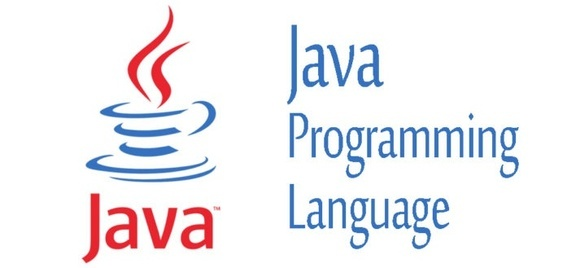One of the questions that I have read lately on Facebook groups are.
I’m new to JAVA and I want to learn
What book do you recommend to start programming?
Any page or help link?
Some others already come with an idea about IDE’s or firmer concepts, there are also people who want to get certified.
The most common problem for newcomers is not knowing what tools or environments to learn. And this situation is perhaps due to the bad documentation that is woven throughout the network. Each one publishes exercises or post with the IDE and BD of their preference, and this can generate confusion.

FUNDAMENTAL LEVEL
Before mentioning what tools you should download, install, configure and then study. There are some important requirements if you want to learn Programming. I mean to build the right environment (your comfort zone).
- Have the necessary architecture (Hardware): If you want to program, you will need a computer with some minimum and / or common characteristics: (Actually, the characteristics can be of greater or lesser proportion, but these seem basic to me)
4GB of RAM
HD 500GB
Intel Core i5 processor, i7 / 2.20GHz
Operating System: Linux / Windows / Solaris / Mac OS
- Do not try to have everything in the same Operating System: This point refers to the bad habit of wanting to have everything in the same ecosystem, install PHP, JAVA, .NET, Python, Ruby, SQL SERVER, MySQL, Oracle, etc. The problem that we will obtain that all the configurations will cross us, sometimes through the ports, and other times the instances of the software will be damaged, then those historical semi-catastrophic errors appear.
Solution: You could use virtualization tools, for example:
VirtualBox
VMware Workstation
VirtualPC
- Learn to elbow quickly (type): The speed with which you write solutions will be many times definitive to know if you stay or not at work. Since the pressure to which you will be exposed throughout all the projects in which you participate will make you many times to program at a thousand per hour. So, get used to it.
- Learn ENGLISH: Why ?: All the syntaxes of any programming language are in English, the best documentation whether books, blogs, articles or magazines are in English, IDE’s are in English (well, now there are packages of language, but they only translate the IDE and not the code that you use), the best developers are foreigners. Learning English is no longer an option but a necessity, and as a future developer you will have to adapt to it. If you have faith in national books, I’ll tell you to be careful, since most of them are bad (not all, well almost all), but the few that are worthwhile (only by chapters) are because they were translated or are simply copies. Therefore, you should see English as a possibility to extend your knowledge and an opportunity to improve your competitive advantage.
BASIC LEVEL
First, you must install the JDK, which is just the heart of JAVA, then you will need an environment for your development, you can choose among many IDE’s, such as NetBeans, Eclipse, JCreator, JDeveloper, Intellij, etc, you can also use editors of text, for example: SublimeText, NotePad ++, the same notebook.
Before learning JAVA, I would recommend you to know its foundations, for example, who was the creator, also a little of its history. Then, you may ask yourself: Why do I need JAVA? What are its most important characteristics? Does JAVA have a future?
If you need books, I recommend: Learn Java as if you were in first, Fundamentals of JAVA, How to Schedule in Java – Deitel 7th Edition, How to Schedule in Java – Deitel 9th Edition. Other valid sources are on Youtube, For example: Código Facilito, JAVA de Jesús Conde and Juan Carlos Zuluaga.
INTERMEDIATE LEVEL
Once started with the basics, and after polishing some concepts, it is important to fully enter the programming paradigms, in JAVA there is a very important one known as Object Oriented Programming, which you are bound to know if you decide to stay in the programming. Another important topic is the data structures, which is quite extensive but necessary, especially for the management of collections and generics.
And to see how your new JAVA concepts are, you could test your knowledge with a self-evaluation.
Without going very far, for the communication of databases with JAVA, it is necessary that you know what is the JDBC?, I also leave you a basic book. Now, if you want to know all the classes, methods, functions, and other JAVA libraries, then the most accurate documentation and good hand you will find it in the official portal. And for more complete projects and decision-making do not forget that you will need to generate reports.
ADVANCED LEVEL
At this level it is vital that you know JAVA EE, for business development, and learn about Java Server Pages (JSP), you should also delve into JAVA compatible frameworks, such as STRUTS, Java Server Faces, Spring, MVC, among others. Also understand that they are the ORM’s, and how HIBERNATE is involved in all this. All this is necessary because you will become more productive if you save time in development. Do not forget WebServices, undoubtedly important for communication between heterogeneous systems.
LEVEL CERTIFICATION
This level is a little more serious, since it requires having absolute knowledge of the 3 previous levels. In the same way, I will share some books so that you will know which topics will be treated in the exams, SCJP Sun Certified Programmer and SCJP JAVA (Exam 310-065). If you are looking for help in Spanish I recommend this link. You can also check the certification on the official site. Remember that the certification exams are in English, so it is necessary to become very familiar with this language.
FORUMS
If technical questions or debates are involved, the forums are a good boxing ring.
Stackoverflow
JavaMexico
Programmers